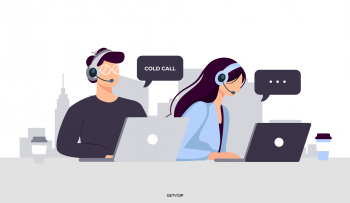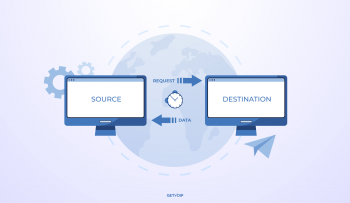We are in the rare situation where a technical term has an evolving definition.
Traditionally, a Direct Inward Dialing Number (DID or also called direct dail-in DDI) referred to the numbers within a personal branch exchange. The DID numbers were actually a subset of numbers, so that the group of numbers could be connected to the PBX, rather than each individual phone, saving space on a limited switchboard. The physical phone lines are called “trunks,” and, for example, there would be 12 lines for fifty numbers. In that situation, the office could make and/or receive up to 12 calls at a time. More than twelve and the trunk is full and can’t accept any more calls. The actual DID numbers themselves were purchased in bulk from a “Competitive Local Exchange Carrier” (CLEC), which was basically a “mom and pop” phone company, competing with “Ma Bell,” or later, the “Baby Bells.”
Within the PBX, I might have the extension 0001, and my colleague would have the extension 0002. I would pick up my phone and dial “0002” and begin our conversation. To an outside line, they would have to call (123)456-0001 to reach me. Otherwise, a caller would dial (123)456-0000 to get a receptionist, who would connect me after screening the call. The outgoing caller ID would usually show the main number, so even if I was calling out, the caller ID would show (123)456-0000.
VoIP, once again, is changing everything. VoIP companies buy phone numbers in every major city, in every country in the world by the thousands every day. Because every call is a local call with VoIP, the numbers aren’t tied to any particular area code. In general, people like to have a phone number that’s local to area that they live in. But there’s no rule that says you have to. A DID number, in this context, means any number, in any area code. And you can buy as many phone numbers as you like. For busines VoIP subscribers, it means that a company can have a local number to make it easier to connect with their customers; for residential numbers it gives them the opportunity to have a number that is inexpensive to keep in touch with family and friends.
Vonage, for example, offers virtual numbers in the U.S., Canada, Italy, and the UK. For people who have moved far away from the place they once called home, this is an invaluable tool to stay in touch with loved ones. For anyone on the other side of the world, all they have to do is place a (cheap!) local number, and the call goes through the internet right through your phone.
Additional Reading
iNum DID: The International Phone Number
10 Things You Must Know Before Signing a 3yr Contract with a VoIP Provider





![What is Omnichannel Customer Service? [Benefits & Tips] What is Omnichannel Customer Service? [Benefits & Tips]](images/omni-channel-explained-350x203.png)

